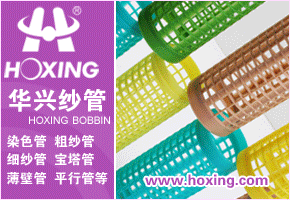Adidas Group to develop a roadmap to address ‘zero discharge’
Since July 2011 Greenpeace International has been campaigning to drive change in our industry. They are calling for the zero discharge of all hazardous and persistent chemicals at all points in global supply chains: from the cotton fields, to the mills and dye houses that make the fabric and the garment production. In China alone, there are an estimated 50,000 textile mills and hundreds of chemicals suppliers. To put this in context, the adidas Group buys fabric from 10 key textile mills and dye houses in China. These materials suppliers follow some of the strictest standards in the industry.
Greenpeace has directed its campaign towards sporting goods companies in the belief that they can act as a catalyst for change for the whole industry. Why? Because sporting goods companies, such as the adidas Group, are already widely recognised for their leadership when it comes to environmental sustainability. The adidas Group has one of the most stringent restricted substances policies of any consumer goods company operating in the apparel sector. We have been working successfully on the reduction and progressive elimination of hazardous chemicals in our supply chain for more than 15 years.
Greenpeace’s Detox campaign has been characterised as a competition among brands. The simple truth, however, is that there can be no “winners” unless the industry acts together. With that objective in mind, the adidas Group has together with other brands been working tirelessly in recent weeks to bring the industry together in a forum to develop a roadmap that will address the “zero discharge” challenge that Greenpeace has posed. That forum is planned to be held at the end of September in Amsterdam.
The following statement is our commitment to deliver change.
Our statement to Greenpeace
The adidas Group is committed to the goal of zero discharge of hazardous chemicals from our supply chain via all pathways, with a 2020 timeline.
The scale and complexity of this endeavour make this a very challenging task, which we will work on through an open and informed dialogue with all stakeholders.
If we are to deliver lasting solutions, our actions need to be guided by transparency, fact-based decision-making and based on a preventative, precautionary and integrated approach to chemicals management.
Within seven weeks, we will develop a roadmap specifically for the adidas Group and our entire supply chain, which will include programmes and actions that we commit to, including actions concerning disclosure. In addition, we will develop and disclose a joint roadmap to detail specific programmes and actions that we can take collectively with other brands to drive our industry towards the goal of zero discharge of hazardous chemicals.
This goal demands the collective action of industry, regulators and other stakeholders. We believe that the elimination of hazardous chemicals needs not only collaboration and partnership with our industry peers, but also a holistic and integrated approach. We will apply value-chain as well as life-cycle thinking and innovation throughout this process and to our approach for Integrated Chemicals Management.
Further, we recognise that to achieve the goal of zero discharge of hazardous chemicals, mechanisms for disclosure and transparency about the hazardous chemicals used in our global supply chains are important and necessary, in line with the ‘right to know principle'.
Greenpeace has directed its campaign towards sporting goods companies in the belief that they can act as a catalyst for change for the whole industry. Why? Because sporting goods companies, such as the adidas Group, are already widely recognised for their leadership when it comes to environmental sustainability. The adidas Group has one of the most stringent restricted substances policies of any consumer goods company operating in the apparel sector. We have been working successfully on the reduction and progressive elimination of hazardous chemicals in our supply chain for more than 15 years.
Greenpeace’s Detox campaign has been characterised as a competition among brands. The simple truth, however, is that there can be no “winners” unless the industry acts together. With that objective in mind, the adidas Group has together with other brands been working tirelessly in recent weeks to bring the industry together in a forum to develop a roadmap that will address the “zero discharge” challenge that Greenpeace has posed. That forum is planned to be held at the end of September in Amsterdam.
The following statement is our commitment to deliver change.
Our statement to Greenpeace
The adidas Group is committed to the goal of zero discharge of hazardous chemicals from our supply chain via all pathways, with a 2020 timeline.
The scale and complexity of this endeavour make this a very challenging task, which we will work on through an open and informed dialogue with all stakeholders.
If we are to deliver lasting solutions, our actions need to be guided by transparency, fact-based decision-making and based on a preventative, precautionary and integrated approach to chemicals management.
Within seven weeks, we will develop a roadmap specifically for the adidas Group and our entire supply chain, which will include programmes and actions that we commit to, including actions concerning disclosure. In addition, we will develop and disclose a joint roadmap to detail specific programmes and actions that we can take collectively with other brands to drive our industry towards the goal of zero discharge of hazardous chemicals.
This goal demands the collective action of industry, regulators and other stakeholders. We believe that the elimination of hazardous chemicals needs not only collaboration and partnership with our industry peers, but also a holistic and integrated approach. We will apply value-chain as well as life-cycle thinking and innovation throughout this process and to our approach for Integrated Chemicals Management.
Further, we recognise that to achieve the goal of zero discharge of hazardous chemicals, mechanisms for disclosure and transparency about the hazardous chemicals used in our global supply chains are important and necessary, in line with the ‘right to know principle'.
转载本网专稿请注明出处“中国纺织网”
编辑:纺织网
文章关键词: Adidas Group zero discharge







